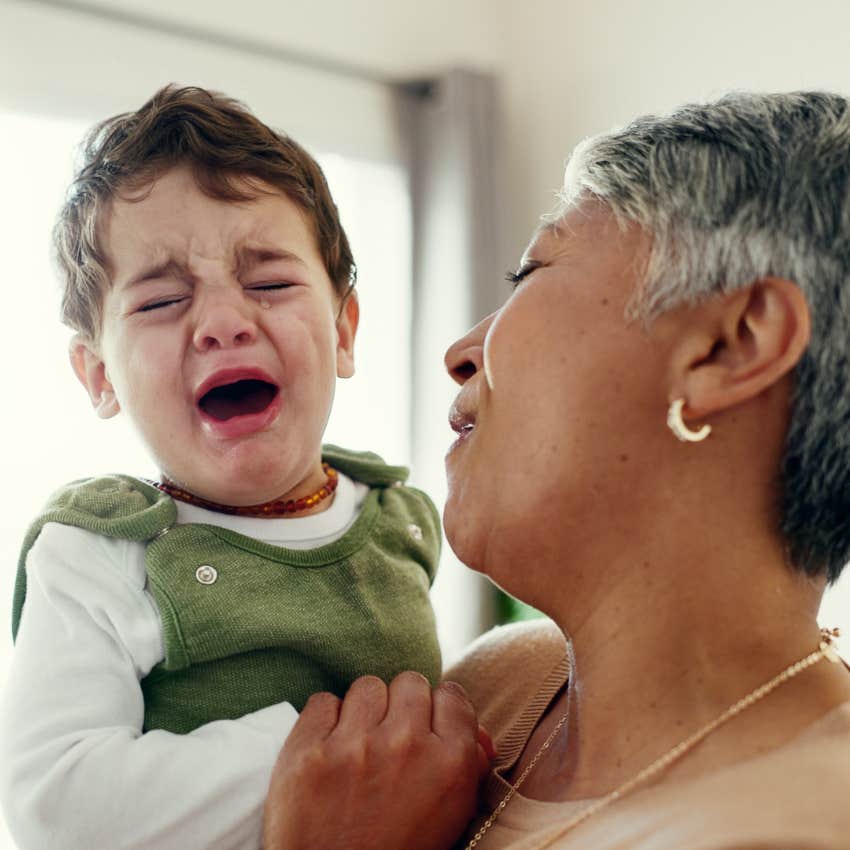10 Parenting Mistakes That Could Be Easily Fixed With A Minimal Amount Of Effort
 InesBazdar | Shutterstock
InesBazdar | Shutterstock We hear it over and over again, and every book, article, and TV show confirms it: Parenting is the hardest job on the planet. But is it, really? Is raising a happy, healthy, well-behaved child truly more difficult than rocket science? Should it truly require a PhD or are parents looking to get off the hook for being judged for our parenting fails?
While parents are bound to make errors, it's all about correcting certain behaviors before it's too late. Whether it's being reactionary or passing blame onto your kid, these are just some of the parenting mistakes that could be easily fixed with a minimal amount of effort.
Here are 10 parenting mistakes that could be easily fixed with a minimal amount of effort
1. Being unsure of a parenting style
 Inside Creative House | Shutterstock
Inside Creative House | Shutterstock
Talk about being destined to fail. Not being sure of how you and your partner want to parent your kids isn't good for either of you. It's important to get to know your child's patterns once they have developed their own habits and personality, not before they are born.
For example, a mother who intends to nurse exclusively might have a child with an allergy to milk, or a mom who is confident that corporal punishment is the only way will raise a child who is hypersensitive to touch. So, learn from your child before you choose your lessons. And, if necessary, decide to adopt a parenting "mindset" rather than a style.
2. Not allowing your children to play and explore
As psychology professor Peter Gray explained in his book "Free to Learn," children learn through play, and play includes struggling, making mistakes, and even getting some bumps and bruises along the way. Parents make the mistake of trying to prevent their kids from getting hurt, not quite realizing that it's their way of learning.
It's perhaps one of the biggest parenting mistakes that could be easily fixed with a minimal amount of effort. Because if we are constantly guarding, guiding, and correcting their playtime, they will be afraid to try new things and, more importantly, they will not learn how to correct or soothe themselves.
3. Reacting instead of responding
You let your child run around the house without clothes at home because that's the latest potty training technique, but when they whip off their pants in the grocery store because they have to use the bathroom, you get embarrassed and scold them so other people don't think you condone exhibitionism.
That sends mixed signals and will only set you both up for failure. The better idea would be to ask your child, "Do you have to go potty?" and follow through while reminding them to use their words next time. Any parent will understand, and if they don't, who cares?
4. Blaming your child for your reaction
"Why do you make me yell at you? We were having a great day until you ruined it!" A phrase like this this teaches your child to blame others for their actions, especially when they are just reacting to you.
Is a two-year-old responsible for you choosing to yell at them? Can the mistake of a toddler take away all the fun you had earlier in the day? Instead, own your decisions and choose your words, saying something like, "I'm yelling because I feel frustrated right now." Then, give them the power by asking them what they can do to help get back on track.
5. Making unrealistic and idle threats
 Drazen Zigic | Shutterstock
Drazen Zigic | Shutterstock
Chances are, you won't leave your child at the mall alone, and you certainly won't physically punish them if they don't stop pulling things off the shelves. So, don't even make unrealistic threats.
When you do this, you're teaching your children to make threats to get their way, and you're telling them you can't be trusted to tell the truth. According to Parenting Magazine Editors in their book "PARENTING: Guide to Positive Discipline," if you're going to make threats, be sure they are things you can realistically follow through with.
6. Not following through on consequences
If you use counting as a tool, be sure your children know what will happen if they get counted out. "I'm going to count to three and you had better sit down." Then what? After the third time of complying, they decide to see what you're made of, and then the negotiation begins.
This is yet another of the parenting mistakes that could be easily fixed with a minimal amount of effort. Instead, have a better plan, set agreements in advance, and stick to them. Say something like, "We will be at the playground until 3 p.m., then get pizza for lunch. If you fight with me when it's time to leave, there will be no pizza. Do you understand?" Then, it's simply a matter of following through.
7. Ending your requests or commands with 'OK?'
This is an easy one. If "no" is not an acceptable answer, don't ask if they are OK with it. "It's time for us to start getting ready to leave. You have two more minutes to play," you can say Period.
According to child development specialist Claire Lerner, kids are persistent and clever in getting what they want, which might including trying to get a reaction out of their parents. But, she added, "As much as these kids want to yank their parents' chains and get a reaction, what they need is for their parents to ignore the provocation, show empathy for their child's disappointment or displeasure at the limit the parent is setting, and then hold said limit."
8. Telling your child it's not their fault, even if it really is
In an example by Jennifer S. Miller M.Ed from her book "Confident Parents, Confident Kids," she explained why this is a parenting mistake. If Suzy pushes Billy off of the sliding board and Billy starts crying and says he doesn't like Suzy anymore, comforting the crying Suzy by telling her it's not her fault is neither serving Suzy's emotional intelligence nor honoring Billy's feelings.
Suzy needs to know her actions affect the people around her, and sometimes, we make poor choices. The better thing to do is to ask Suzy: "Billy is hurt and sad right now. What would you like to do to make this better?" She may not respond by walking over and apologizing right away, but she might make him a card or ask him to play something else. Let the apology be her own, but acknowledge the effort.
9. Forcing your kids to display affection to strangers
 PeopleImages | Shutterstock
PeopleImages | Shutterstock
We talk about "stranger danger," but when we attend a gathering with family or friends that our children don't know, we insist they give Aunt Mary a kiss. But forcing your child to show affection to people they either don't know or don't wish to make physical contact with can be detrimental.
Sparing a distant relative's feelings by forcing our children into uncomfortable situations is not a good move. It's contradictory and confusing. Instead, teach your child to express their boundaries and allow kids to keep their distance while maintaining their comfort level in a way that still lets Aunt Mary feel loved.
10. Comparing other people's kids to your own
Especially in front of your own children, comparing your kids to others' is one of the parenting mistakes that could be easily fixed with a minimal amount of effort. Parents deal with enough blame, shame, and guilt from their beliefs without putting it on each other. So what if Jamie's kids don't eat meat? Who cares if Bill and Donna let their kids have iPhones? Those are their kids and their rules. That doesn't mean you have to change your beliefs to compete with them.
Unless someone is harming their child, what if we just let parents parent? And what would happen if we all decided to take our favorite things from each other and implement them? And what if we would then thank each other for sharing them? It sounds illogical, but imagine what a different world this would be.
Tara Kennedy-Kline, CFC, CLC, is a parenting coach, TV/radio host, and the author of three parenting books, including Stop Raising Einstein.

